Tyrosine Kinase
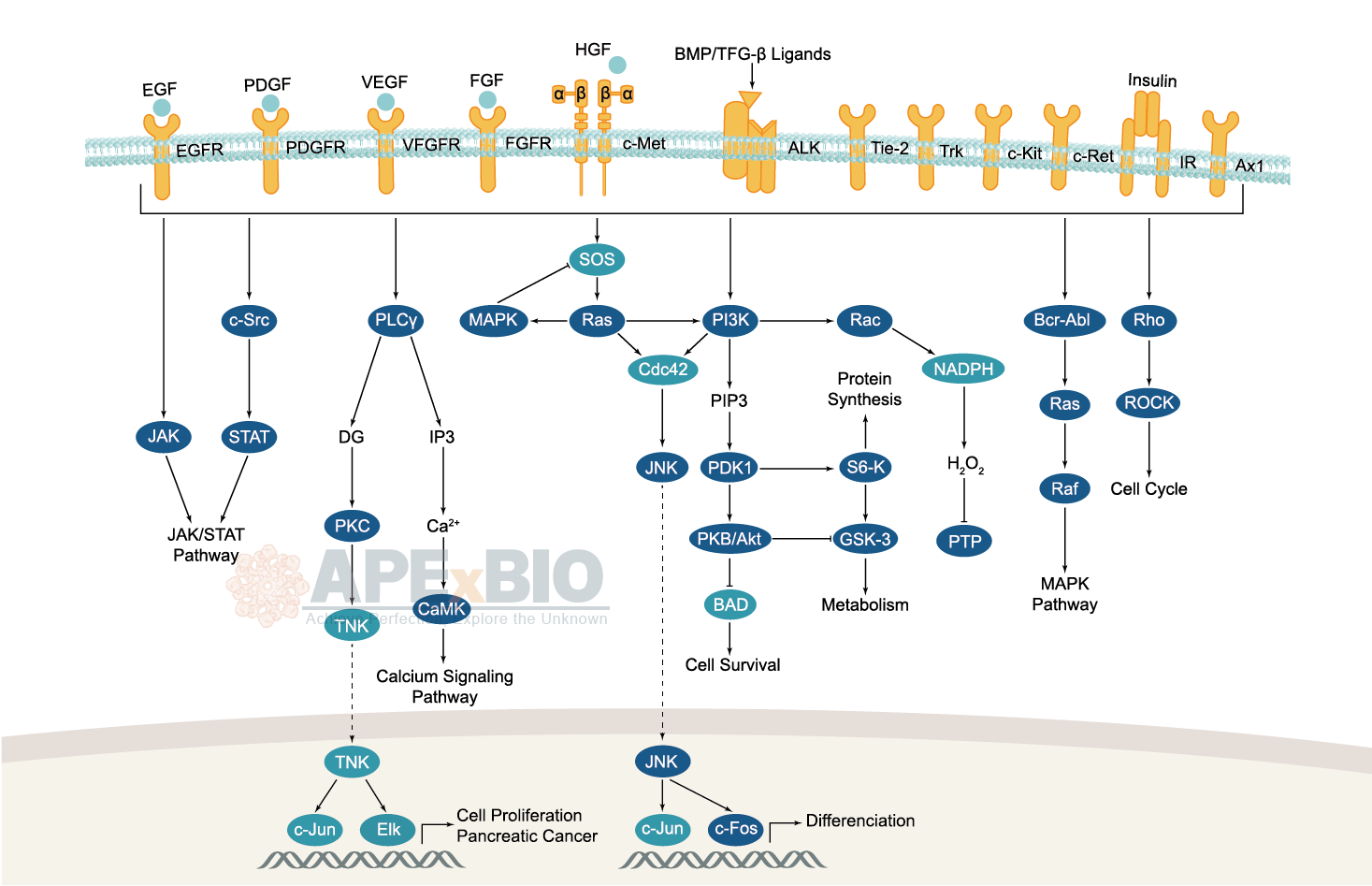
Receptor tyrosine kinases bind to extracellular ligands/growth factors, which promotes receptor dimerization and autophosphorylation of receptor tyrosine residues. This triggers a cascade of downstream events through phosphorylation of intracellular proteins that ultimately transduce the extracellular signal to the nucleus, causing changes in gene expression. Receptor tyrosine kinases include EGFR/ErbB, PDGFR, VEGFR, FGFR and MET subfamilies etc. Dysfunctions in tyrosine phosphorylation are linked to oncogenic transformation. In additions, various adaptor and effector proteins couple to carboxy-terminal of an active kinase. For instance, binding of the GRB2 adaptor protein activates EGFR and MAPK/ERK signaling.
Non-receptor tyrosine kinases involve many well-defined proteins (e.g. the Src family kinases, c-Abl, and Jak kinases) and other kinases which regulates cell growth and differentiation. For example, Src family kinases are curial for activating and inhibitory pathways in the innate immune response.
-
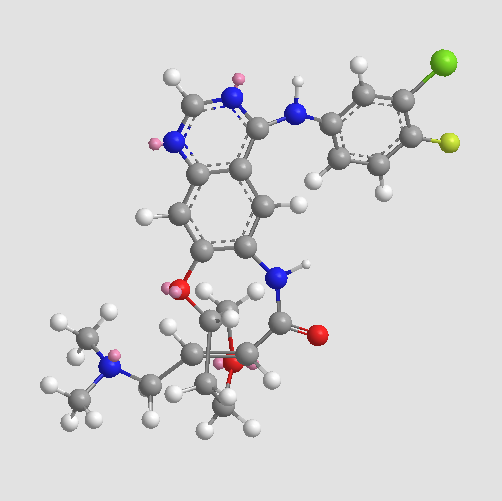 A8247 Afatinib (BIBW2992)1 CitationTarget: EGFRSummary: Irreversible EGFR/HER2 inhibitor
A8247 Afatinib (BIBW2992)1 CitationTarget: EGFRSummary: Irreversible EGFR/HER2 inhibitor -
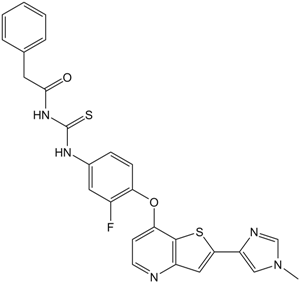 A5057 MGCD-265Target: VEGFR|c-METSummary: Met/Flt/Flk/Ron/Tie-2 inhibitor
A5057 MGCD-265Target: VEGFR|c-METSummary: Met/Flt/Flk/Ron/Tie-2 inhibitor -
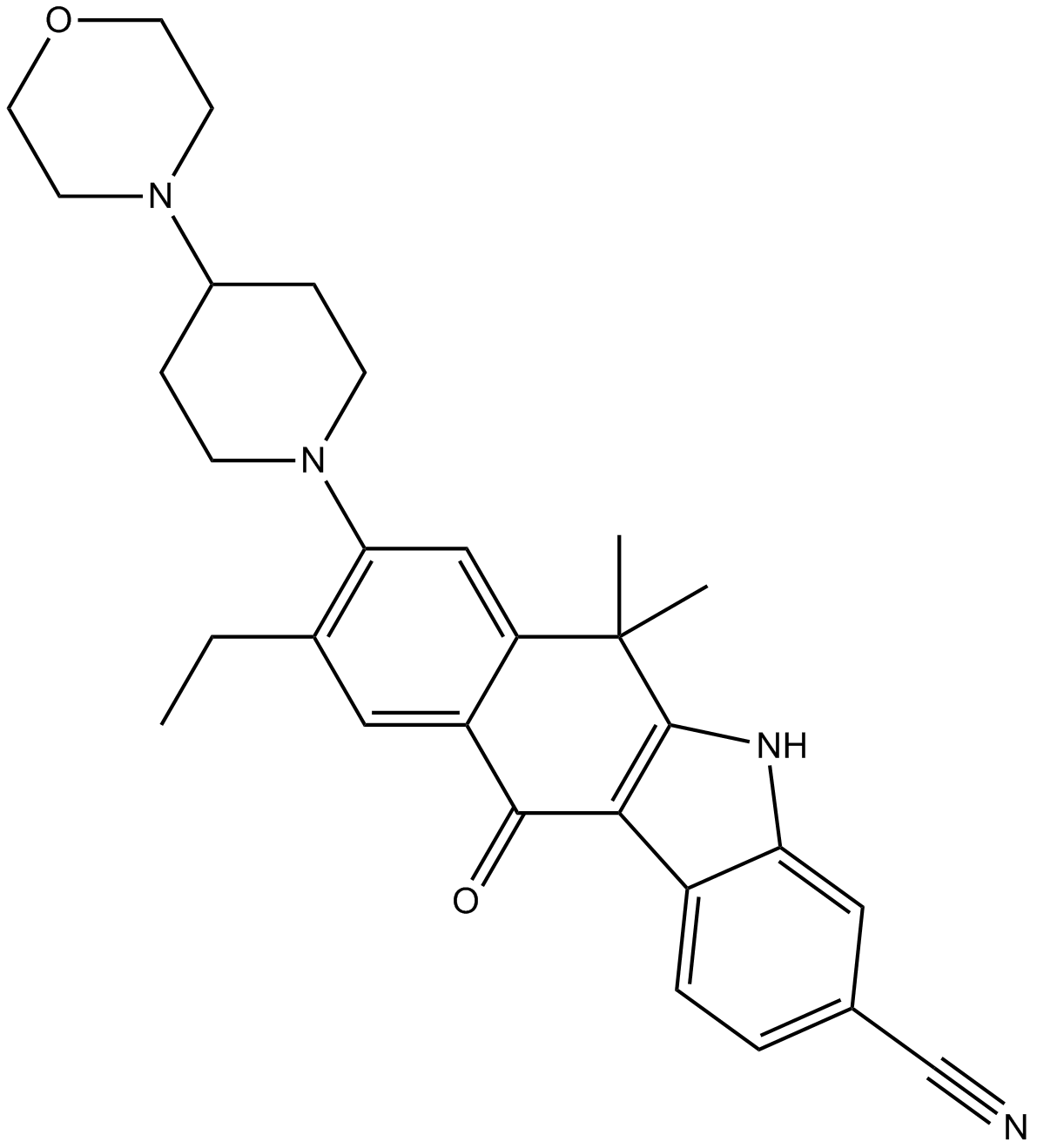 A8393 CH5424802Target: ALKSummary: ALK inhibitor,potent and ATP-competitive
A8393 CH5424802Target: ALKSummary: ALK inhibitor,potent and ATP-competitive -
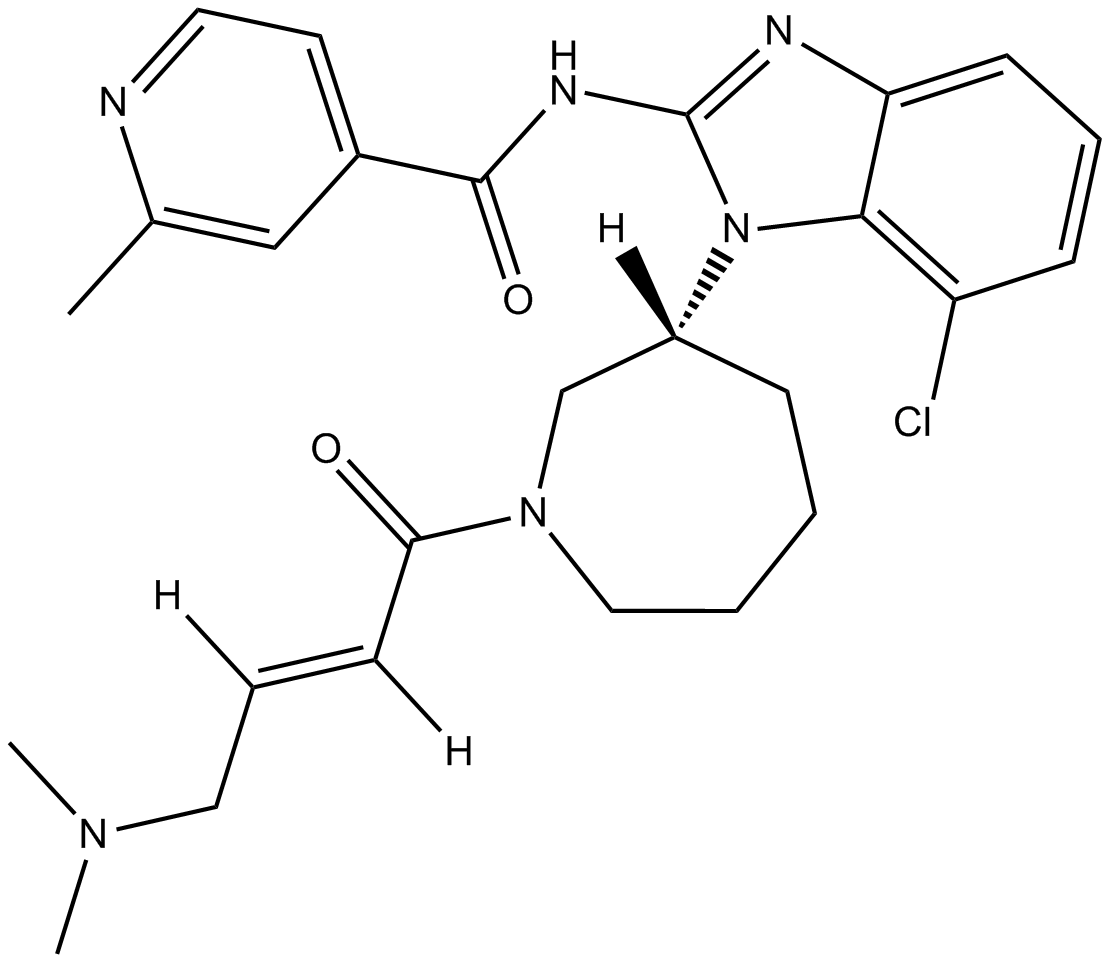 B5889 EGF8162 CitationTarget: EGFRSummary: Novel covalent inhibitor of mutant-selective EGFR
B5889 EGF8162 CitationTarget: EGFRSummary: Novel covalent inhibitor of mutant-selective EGFR -
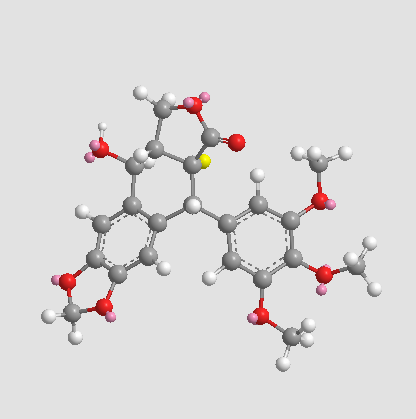 A3209 AXL1717Target: Insulin-like growth factor receptors(IGFRs)Summary: IGF-1R inhibitor,orally active
A3209 AXL1717Target: Insulin-like growth factor receptors(IGFRs)Summary: IGF-1R inhibitor,orally active -
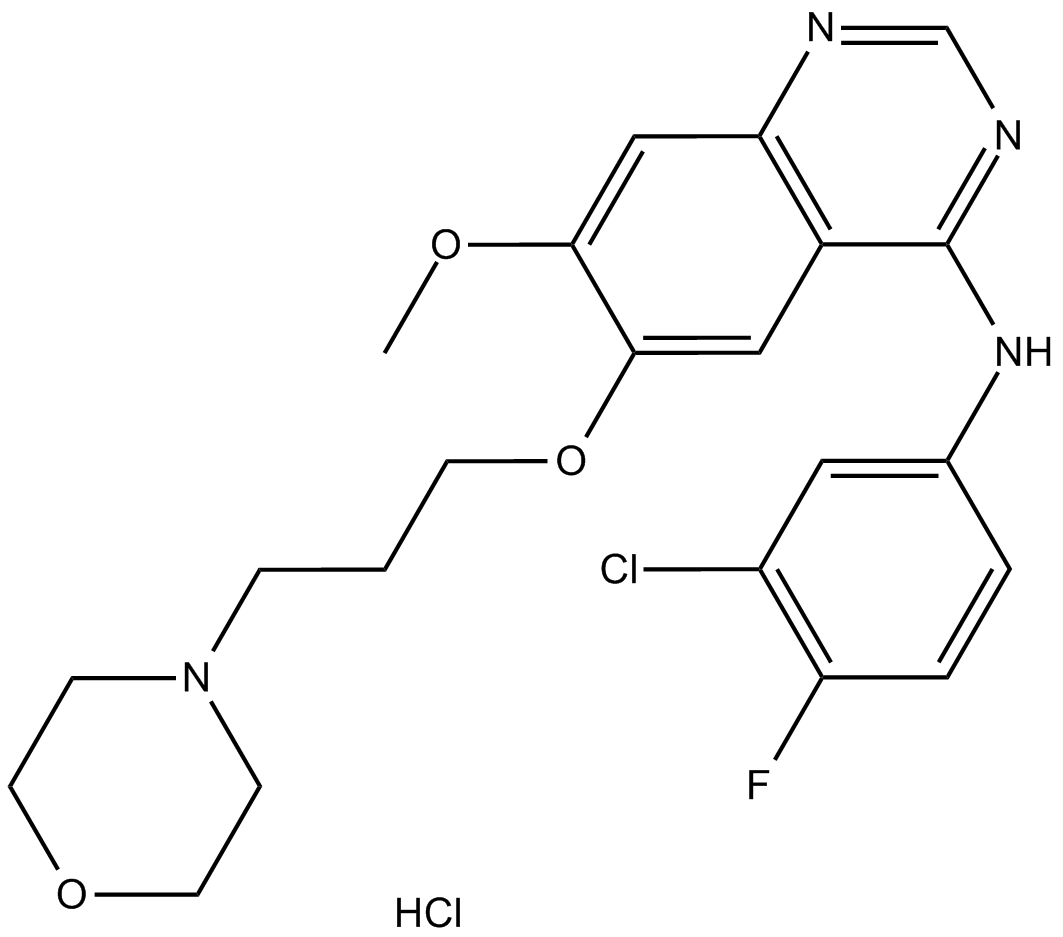 A3433 Gefitinib hydrochlorideTarget: EGFRSummary: Potent EGFR inhibitor
A3433 Gefitinib hydrochlorideTarget: EGFRSummary: Potent EGFR inhibitor

